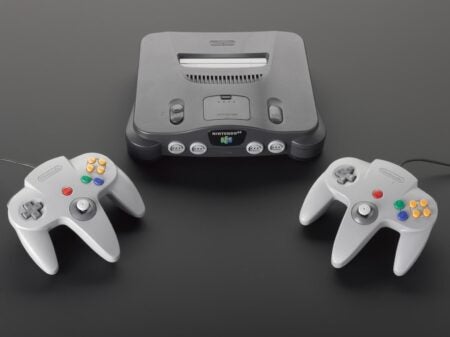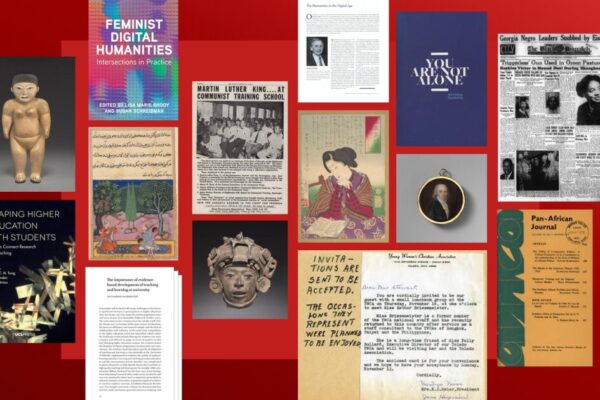
JSTOR Access in Prison Second Chance Month essay, Prison: Just Another Roguelike, by Michael Munro
About the author
Arrested in March 2018, Mike Munro releases later this year in July 2025. He bounced between several prisons (Shelton, Clallam Bay, Stafford Creek, then Twin Rivers). He studied Astronomy at the UW, and taught K12 STEM for over eight years. He continues teaching in prison and is a force multiplier for anyone dedicated to bettering themselves. Munro taught himself to code in prison and is excited to combine his unique background and skills in the fast-paced field of Al and Machine Learning after his release, eventually as a project manager.
Prison: Just Another Roguelike
A “roguelike” is a genre of game for the masochist. Someone who thrives on challenge and failure, feeds off frustration, and is only driven onward by adversity.
You make a “run”—an attempt or play-out of the game—often learning the rules as you go, where the core of the game revolves around failure. A lot of failure. With the end of each run, you start all the way over, back at zero. You again sprint, off into the unknown, each time hoping to make it just one step further than you did previously, and (knowing you’re going to fail at some point) learn that one, desperate thing to aid in the next one.
The roguelike emulates my journey growing up as a gay autistic kid, navigating a hostile culture, alone. No family, no guidance, no stability. Stumbling around in the dark. Forced to move each year—new home, new school, new environment, new rules.
As a teacher, I found that kids often play—simulate—the things that parallel their traumas in their games, in a safer medium. And I need my games to be hard. To induce in me that fear and anxiety I’ve felt my whole life. To affirm in me the process of learning rules that refused to remain static and held exceptions that sabotaged my every attempt to predict or adapt.
As a kid, I had never been allowed to fail without losing everything. The only thing I could take with me each time was my mind. My intelligence. The lessons I learned from the last run. And it became an obsession to me. I had to do better. I had to be smarter—to learn faster. No one was going to teach me how to play.
Learning and exploration became, first, an obsession (for survival), then a passion (for education).
And the roguelike further emulated my experience navigating prison, as I learned to really build an identity for the first time. But it was easier to survive prison than childhood—I had already learned how to play this game. To navigate violence, oppression, and uncertainty.
Prison gave me an opportunity to finally stop moving and develop myself. I kept thinking back to that gamer kid that wanted to make his own video games but never had the time or resources to learn (or someone to teach him). To craft worlds and experiences that others would want to engage with. To find refuge in, like he had.
I started studying game design at “the Bay” (Clallam Bay Corrections Center). After two years in the vacuum of County Jail, it was an oasis. A dangerous, hyper violent bastion of knowledge.
I had just arrived at the Bay when covid locked it all down. All the programs shut down, cohorts implemented, no chow hall. But Education (Peninsula College) was determined to continue, despite the lockdowns.
We had hundreds of coding eBooks on the laptops, a dozen IDEs, and every obscure SDK for any language you could ask for. Covid gave me a lot of time in the cell to study and explore. I had more than I knew what to do with, and more than I would ever again have in this prison system. Which is another common theme gamers should recognize—start them out with everything, then take it all away before they know what they have. Then begins the slow grind to unlock each new level, new ability, new asset.
My nascent passion for game design quickly matured into a greater fascination with Al and procedural content generation (PCG) (and an absolute contempt for the time sink of UX). I quickly ditched my “Settlers of Catan” clone to design a 2D roguelike platformer.
I felt a compulsion to communicate my autistic queer experience through my games. Through levels and rules that changed each time you turned around. No tutorial—no one is going to hold your hand. Your opportunities are fleeting, so I hope you’re paying attention. Game worlds that kept shifting the goalposts. When you mastered one mechanic, it punished you for not knowing them all.
A niche market for sure.
Before prison, my identity was fractured and amorphous, without any real direction in life. A gay gamer boy that defined his self-worth explicitly by the value he had to others. After his mom died, he raised himself, on autopilot. He managed to get to college (where he at first excelled) until he transferred to the UW (where he wasn’t the smartest kid in class anymore) to struggle through an Astronomy degree. All the while working as an educator where he had found a sense of purpose for the first time in his life.
And work as an educator was its own roguelike. Each year equals new students, new admin, new curriculum standards. I had come to feel familiar with instability, and each year there was just another run. But I couldn’t see the harm this was causing to me, and eventually to others.
As a teacher, my life was dedicated to the empowerment and development of other people. I wore a lot of hats and worked over 100 hours a week. I went home and worked on the next day’s content between matches of Overwatch or StarCraft.
And I loved every minute of it. I had purpose. I learned that I could have value to a community, where before I had known none. But I had never learned to define myself outside of my value to others, and was all-in. I was incapable of setting boundaries, because I was terrified it would trigger a reset. To end this run, when I finally felt I was doing so well.
I didn’t want to lose that. And every day compounded the anxiety and desperation to preserve it. Until that run, too, had ended.
Having lost everything I defined myself by, in prison I was dropped back into a world that emulated my childhood. But stripped of all obligations and responsibilities, I could rewrite that definition. My core value, that kernel of purpose, was ultimately Discovery. To fill out every dark corner of that mini-map.
Prison was just another run, but I knew how to play this time.
With an extensive background in education, I was immediately given a TA job to teach GED, business math, and coding—and access to a laptop.
As I studied game design, I’ve been teaching myself various programming languages. With each facility transfer, I lose all my work and start over, always with different resources and IDEs (or Notepad if none). That meant new programming languages, new syntax, new design patterns. I went from Python to TCL/TK, JavaScript, to fullstack React applications, and back to Python.
Now, empowered by professors in prison, and mentors from the Prison Math Project (PMP), I’ve been studying data science and machine learning as I prepare to engage with these new LLMs and explore the frontier of this new technology when I release later this year.
Throughout my life was always the lingering malaise of that scarcity mindset. It continued in prison, where I only had this laptop for a moment, and needed to learn the most I could while I had it. I needed to be purposeful in what I studied each iteration and design my projects to maximize that gain.
Forced to live these last seven years in these iterative study cycles, in a highly constrained learning environment that required a lot of creative solutions, I had developed a relentless startup mindset. It has made me into a phenomenal programmer, and an innovative problem solver, able to work with very little to manifest my vision in a vacuum.
And now, I know exactly where I’m going.
My background in education and STEM, coupled with an indefatigable passion for learning and discovery as I’ve taught myself to code, has well prepared me to be an entrepreneur in this emerging Al space, and to thrive in a high-stress startup environment as I explore the mass potential made possible with this new technology.
And, inevitably, when the game changes—dead ends or new directions—I’ll pivot and do it all over again.
Editor’s note
by Grace Cope
Reinterpreting “failure” is a powerful act. Michael’s essay is a moving meditation on how failure can be transformed through the lens of identity. As a designer, queer person, and avid fantasy reader, I’ve found that incorporating alternative worlds is an essential part of my practice—tools to reimagine experiences both digitally and interpersonally.
Reading Michael’s essay, I am moved by his intensity. His writing is thick with desire and action to confront failure again and again, and to use the power of play to transform it into something generative. He reminds me that imagination is not just courageous, but also can be dangerous. Worldbuilding often means rejecting all notions of familiarity, shared culture, and personal history to imagine new landscapes and possibilities.
I’m moved by how Michael has transformed this necessity into building a new world for himself, and how he seeks to share that world with others. I am so glad that Michael has had access to tools like coding environments, game design classes, and other educational opportunities, like the Prison Mathematics Project, while inside. It is clear these opportunities have been crucial to fueling his passion and shaping his multifaceted identity.
Technology can be overwhelming, abstract, even alienating. I can sometimes get lost in the relentless pace of technological change. But to witness the person behind the code, the humanity behind the worldbuilding …
This is who I want dreaming—and coding—the world to come.
The opinions and views expressed in these recordings, art, and posts are those of the authors and do not represent, reflect, or imply endorsement by ITHAKA.



